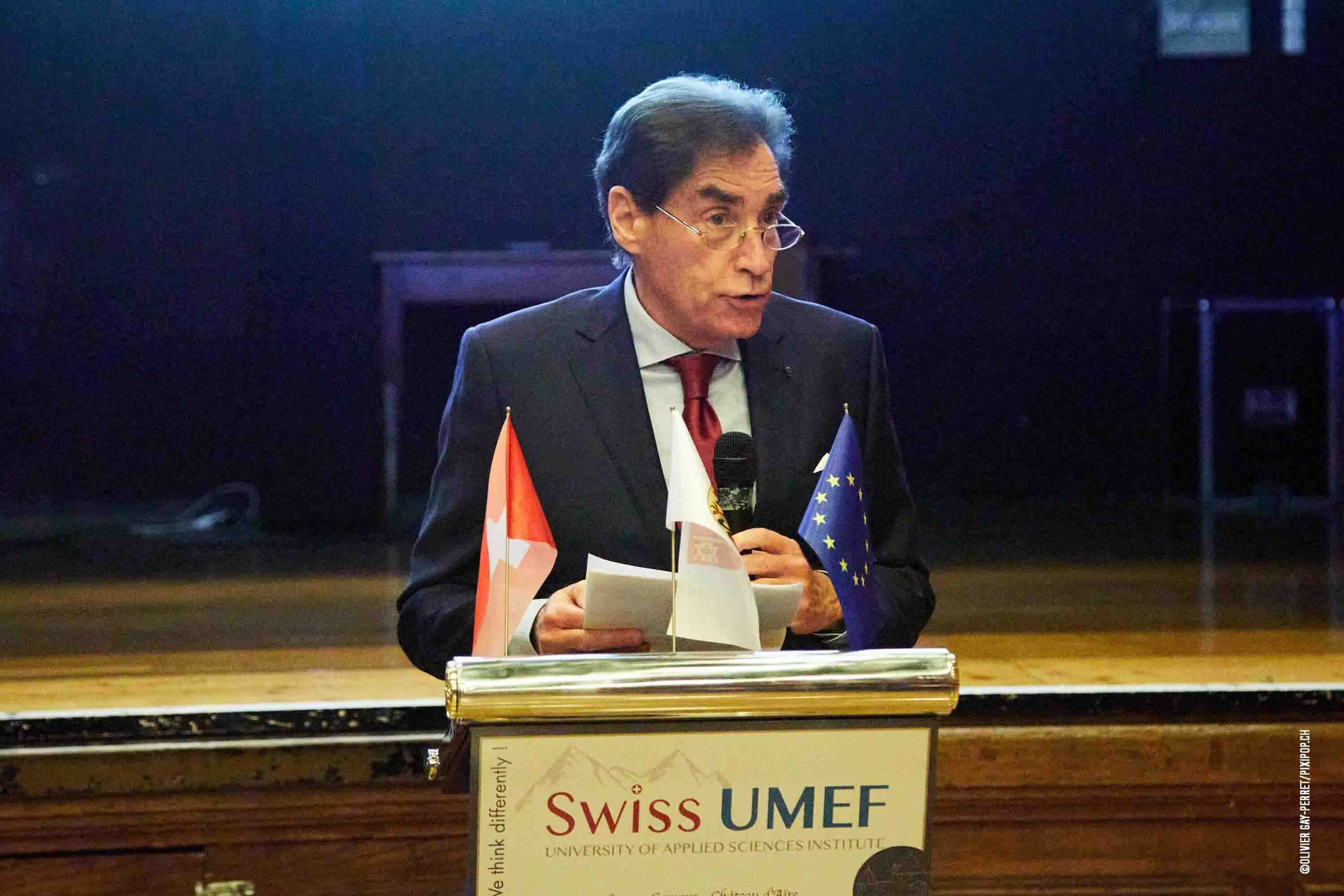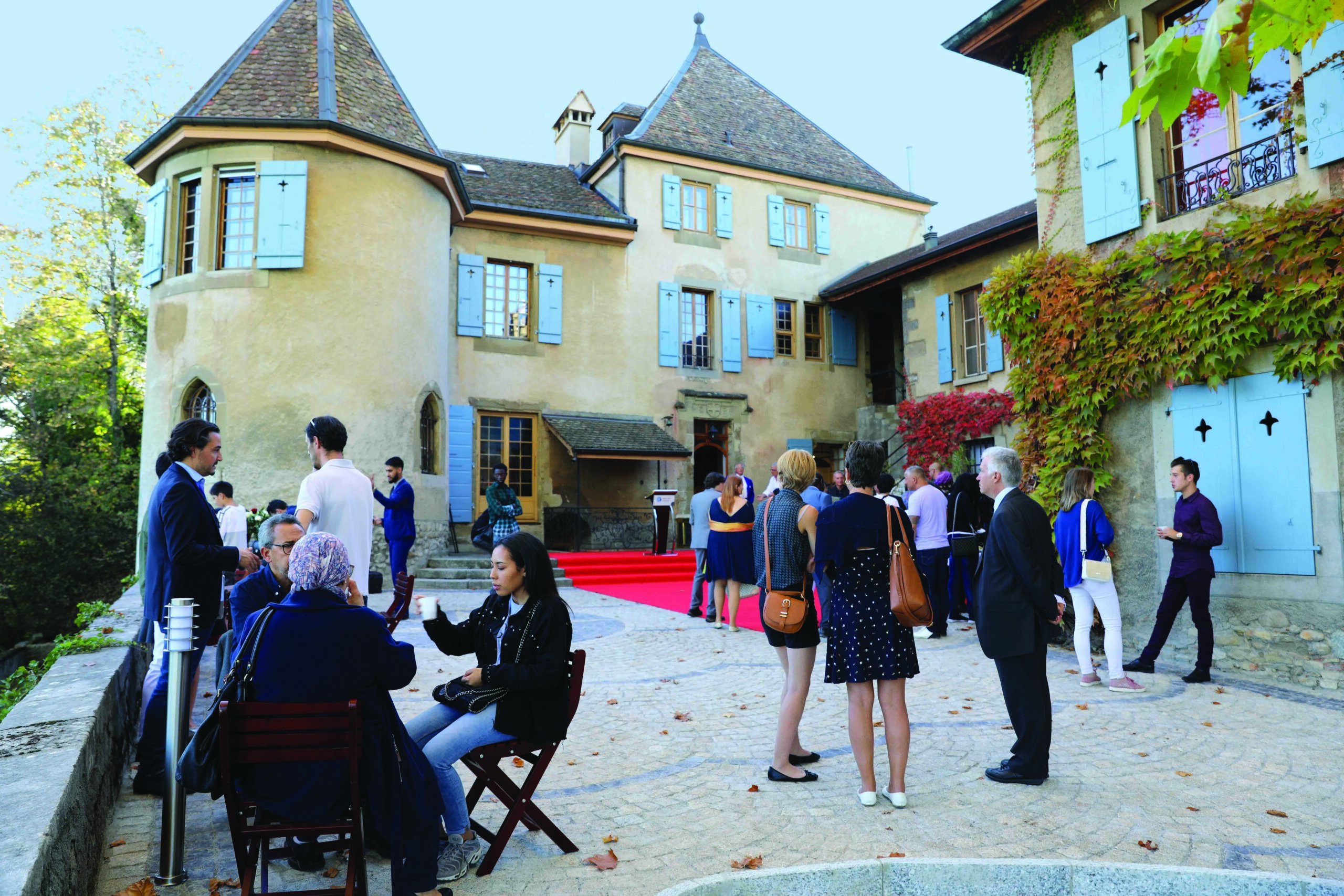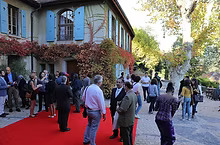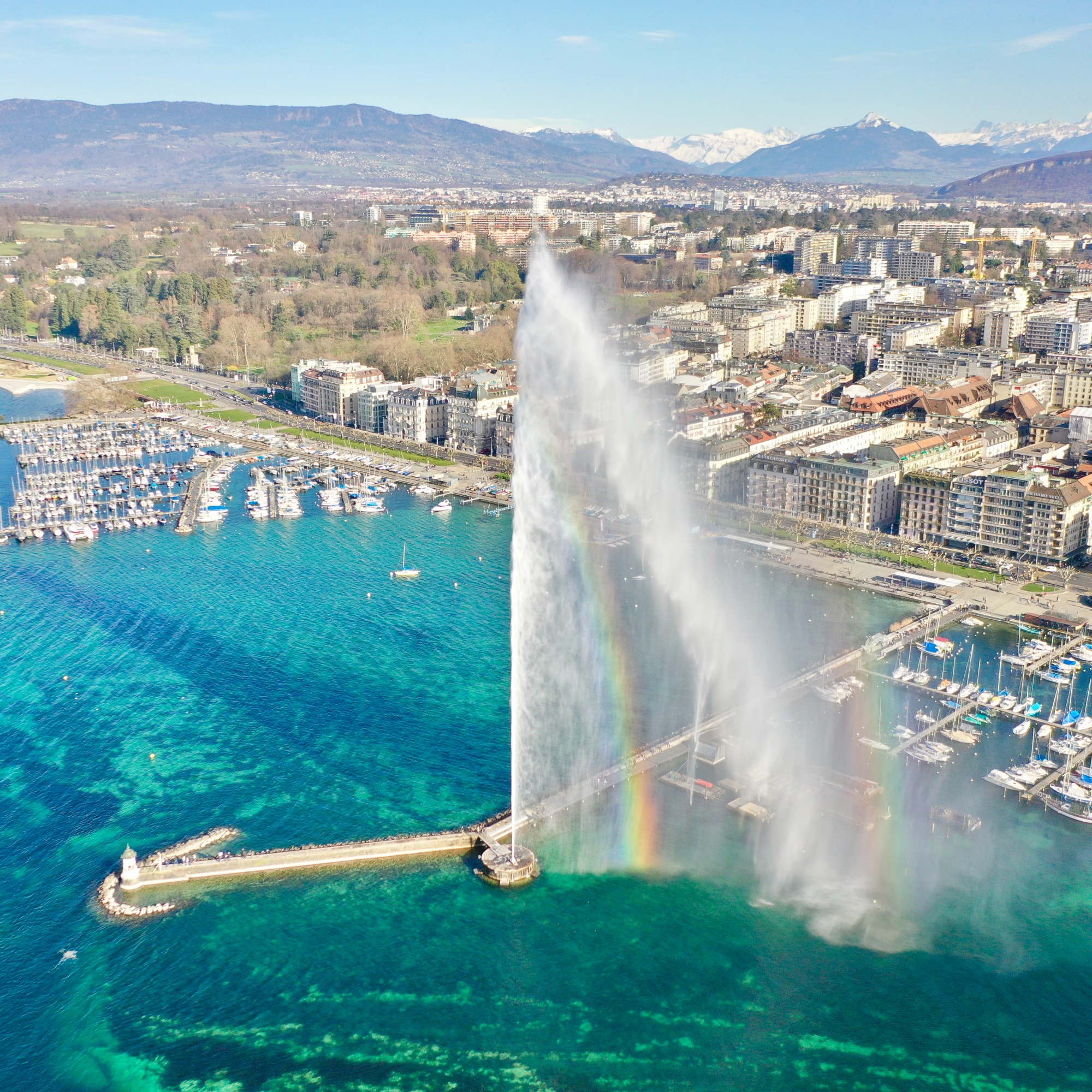EMBA Campus Immersion Program
5th – 8th May, 2025
Swiss UMEF, Geneva
The EMBA Campus Immersion Program offers a unique and enriching experience where participants will explore Switzerland through guest lectures on Geoeconomics and Geopolitics, visits to global institutions like United Nations and World Trade Organisation, city tours, and a range of social activities organized by Swiss UMEF Geneva.
The Immersion Program is open to participants of our Executive MBA program delivered in association with Swiss UMEF University of Applied Sciences Institute.

4-day Program Overview
Our campus immersion program focuses on the following areas:
- Understand the concept of geopolitics and geoeconomics
- Analyse the role of geography in shaping international relations
- Identify the economic and political factors that influence global power dynamics
- Evaluate the impact of globalization on the international system
- Apply geo-economics and geopolitical analysis to real-world scenarios.
This immersion program will help you gain deeper understanding on geopolitics and economics, while also providing valuable networking opportunities with diplomats and current and former heads of governments, equipping you with first-hand knowledge on global politics from experts, in a global city and a worldwide centre for diplomacy.
What is Included?
The fee for the 4-day program is covered in the tuition fee, which includes lectures, institutional visits, and leadership sessions at the Swiss UMEF campus.
What is not Included?
The following expenses are not included: food and accommodation, visa charges and flight tickets, local travel & insurance, airport transfers, entry tickets for any local attractions and personal expenses.

About Geneva
Geneva: A City of History, Diplomacy, and Global Relevance
Geneva, located at the western tip of Switzerland, is one of the country’s most important and cosmopolitan cities. Known for its stunning lakeside setting, surrounded by the snow-capped Alps and Jura mountains, Geneva is a city where history, diplomacy, and international cooperation intersect. It has long been a hub for global governance, humanitarian efforts, and cultural exchange.
Historic Importance
Geneva’s history stretches back to Roman times, and it was a significant settlement during the medieval period. By the 16th century, Geneva became a center of the Protestant Reformation, thanks in large part to the influence of John Calvin, one of the most important reformers in Christian history. Under Calvin’s leadership, the city transformed into a theocratic republic, which not only shaped the religious landscape of Europe but also laid the groundwork for the modern concept of secular governance.
In the 19th century, following the Napoleonic Wars, Geneva became part of the Swiss Confederation in 1815, after being ceded to Switzerland by the Treaty of Paris. Its location on the border with France made it a critical point of contact between different cultures, and it also began to play a more prominent role in global diplomacy.


Global Relevance
Geneva is often referred to as the “capital of peace,” due to its central role in global diplomacy, human rights, and humanitarian aid. The city is home to a number of international organizations, including the United Nations Office at Geneva (UNOG), the World Health Organization (WHO), and the International Red Cross. These institutions make Geneva one of the key global centers for international relations, political negotiations, and the promotion of peace and human rights.
Geneva hosts the headquarters of various international agencies, such as the World Trade Organization (WTO), the International Labour Organization (ILO), and the World Intellectual Property Organization (WIPO), which are instrumental in regulating global trade, labor standards, and intellectual property. Additionally, Geneva plays a significant role in addressing global challenges such as climate change, health crises, and migration, with many conferences and treaties held in the city aimed at fostering cooperation and resolving disputes.
What Geneva is Famous For
International Diplomacy and Organizations: Geneva is often associated with diplomacy and international organizations. The UNOG building, located on the banks of Lake Geneva, serves as a major site for multilateral negotiations and peace talks. The city also hosts the headquarters of the International Committee of the Red Cross (ICRC), an organization founded in Geneva in 1863 that continues to play a critical role in humanitarian aid during armed conflicts.
The CERN Research Center: Geneva is also famous for being home to the European Organization for Nuclear Research (CERN), where the Large Hadron Collider (LHC) is located. CERN is one of the world’s largest and most respected centers for scientific research, particularly in the fields of particle physics and cosmology. It was at CERN that the World Wide Web was invented in 1989, further cementing the city’s role in global scientific and technological advancements.
The Geneva Motor Show: Another famous aspect of Geneva is its annual international motor show, one of the world’s most prestigious events in the automotive industry. It attracts car manufacturers, designers, and enthusiasts from all over the globe, making it a focal point for showcasing cutting-edge automobile technology.
The Beauty of Lake Geneva and the Old Town: Geneva’s picturesque setting on the shores of Lake Geneva (Lac Léman) is renowned for its beauty. The Jet d’Eau, a massive water fountain that shoots water 140 meters into the air, is one of the city’s most famous landmarks. The historic Old Town, with its cobbled streets, medieval architecture, and the majestic St. Pierre Cathedral, offers a glimpse into the city’s rich past.


